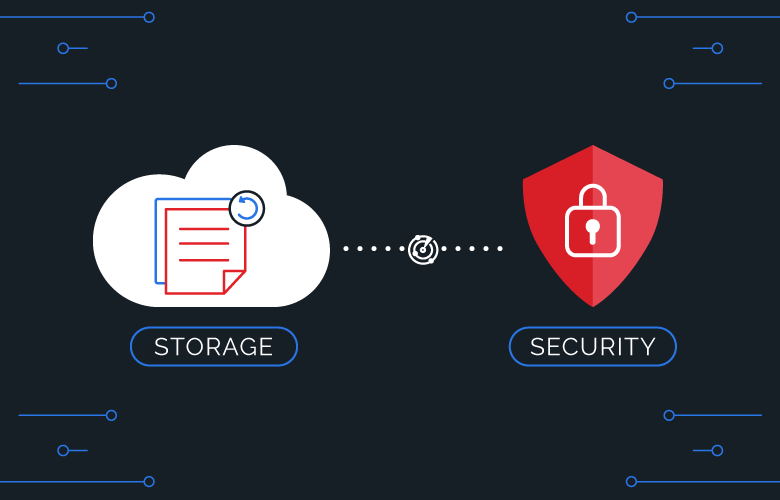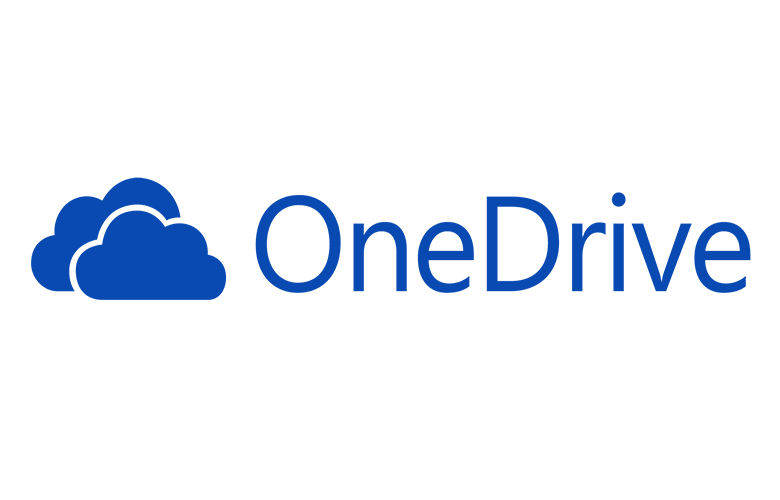March 20, 2022
Protect Your Online Privacy with a VPN
Virtual Private Network (VPN) technology has been around for a while, and it’s finally beginning [...]

WHAT’S IN THIS REVIEW?
Disclaimer: Partnerships & affiliate links help us create better content. Learn how.
There is a lot of ambiguity when it comes to cloud storage. Unlike files that save onto your computer’s hard drive, the files you keep on cloud storage are connected to a server of networks. Essentially, when you save files to the cloud, you can access those files from any computer connected to the same cloud network. Therefore, if you have two laptops and a mobile phone, all the same data will mirror across all three devices. A great example of this will be if you have a Gmail account. With cloud storage, you can access your emails, calendar invites, and more on any device you access Gmail.
Cloud storage makes a lot of sense in today’s day and age with the ever-growing amount of information we store on our devices. These spikes will only continue with more people working from home and wanting to protect their texts, passwords, documents, photos, and videos. The line between personal and professional data is only getting thinner (if there even is a line at all at this point) as we continue to deal with business matters on our personal devices. Our increased device use has led to the unintended consequence of an increase in cyber-attacks. Cybercriminals know how to access your cloud files, which is why it’s so important to take precautionary measures like downloading a secure VPN service.
Cloud storage sends your data to a server at an off-site location, which leaves the handling of the user’s data out of their control. In many ways, this is beneficial because there’s less responsibility falling onto the user, but it’s also risky due to threats of data breaches. Keep reading to learn more about the risks and benefits of using cloud storage.
Cybercriminals can guess your security questions and passwords to access your files. This can lead to data leaks and potentially having your information in the wrong hands. That being said, you should definitely get a password manager.
Third parties such as governments and large tech companies can view your private information. Only the cloud provider can deny access to these third parties since cloud data is not stored on your hard drive.
Transferring large amounts of data from the cloud can cause your internet service provider congestion, especially if you’re connected to a public network. Fortunately, you can counteract this by increasing your internet’s bandwidth.
Industries such as legal, financial, and health care must comply with strict data privacy regulations. These restrictions often result in them not allowing the use of any cloud services.
Cloud storage is not only easy to set up and use but allows you to store much more data than if you only had your hard drive. Plus, once you set up cloud storage, you can start using it within hours or days, depending on the storage capabilities you wish to have.
Unlike USBs and other external hard drives, cloud storage is often extremely cheap, if not free. It’s also much easier to access all your files from the cloud instead of multiple external hard drives, which is why so many people opt for cloud storage.
IPVanish understands the necessity of affordable storage, offering 250 GB of free cloud storage with SugarSync when you sign up for its VPN subscription. And, if you end up needing more space in the cloud, you can upgrade for a fraction of the cost of SugarSync’s solo plan.
Storage capacity on the cloud is virtually unlimited. Without any storage capacity restrictions, it’s much easier to scale up as much as you need.
Although there were cloud security breaches in the past, cloud storage is still more secure than storing all your files onto your hard drive. Hackers will have a much harder time breaching your data in the cloud because its data warehouses are heavily guarded. Cloud data is also encrypted, making it much harder for cybercriminals to initiate malware attacks.
The current top cloud storage providers are Google Drive, iCloud, Dropbox, and OneDrive. We are going to dive into all four of these providers to compare their security levels. Keep in mind that a VPN service will cover any gaps that these cloud providers have.

Google Drive is a trendy choice for both individuals and companies since its cloud services are associated with Gmail. Plus, Google Drive is free for up to 5 GB of storage.

iCloud is extremely popular for Apple users since it’s integrated into all of their products. Apple also claims its cloud services are more secure than its competitors.

Based in San Francisco, California, DropBox is the only cloud service of its competitors that’s not tied to a large tech company. Its services, in other words, have essentially become popular on their own.

OneDrive is a popular cloud service by Microsoft that offers freemium services like Google Drive. Much like Google Drive, users can have up to 5 GB of storage for free and share files easily between individuals and teams.
For the most part, your data is safe on the cloud, but it’s still important to set yourself up for success.
We live in an age of almost endless options. Don’t store all of your files in one place. There are plenty of free cloud storage services to choose from!
Make sure you create unique passwords that are not only hard to guess but different for each of your accounts. To keep track of all these passwords, keep in mind that it’s perfectly safe to use a password manager. Just don’t forget your master password, and be sure to activate your two-factor authentication (2FA) settings.
Your internet browser essentially tracks your every move. Always remember to log out and not save passwords onto your browser. We even have a list of the best private browsers to use that won’t track your information.
As you can see, while cloud storage has its advantages, there are still many gaps when it comes to your security and privacy online. Secure VPNs will cover any holes on the security and privacy front. Many privacy-focused VPNs use open-source software and strong encryption, drastically reducing your chances of encountering any breaches or cyber-attacks. That being said, using cloud storage is safe overall. Just be sure to take precautionary measures and encrypt your data where you can.
| Cookie | Duration | Description |
|---|---|---|
| __cfduid | 1 month | The cookie is used by cdn services like CloudFlare to identify individual clients behind a shared IP address and apply security settings on a per-client basis. It does not correspond to any user ID in the web application and does not store any personally identifiable information. |
| cookielawinfo-checkbox-advertisement | 1 year | The cookie is set by GDPR cookie consent to record the user consent for the cookies in the category "Advertisement". |
| cookielawinfo-checkbox-analytics | 1 year | This cookies is set by GDPR Cookie Consent WordPress Plugin. The cookie is used to remember the user consent for the cookies under the category "Analytics". |
| cookielawinfo-checkbox-necessary | 1 year | This cookie is set by GDPR Cookie Consent plugin. The cookies is used to store the user consent for the cookies in the category "Necessary". |
| cookielawinfo-checkbox-non-necessary | 1 year | This cookie is set by GDPR Cookie Consent plugin. The cookies is used to store the user consent for the cookies in the category "Non-necessary". |
| cookielawinfo-checkbox-performance | 1 year | This cookie is set by GDPR Cookie Consent plugin. The cookie is used to store the user consent for the cookies in the category "Performance". |
| viewed_cookie_policy | 1 year | The cookie is set by the GDPR Cookie Consent plugin and is used to store whether or not user has consented to the use of cookies. It does not store any personal data. |
| Cookie | Duration | Description |
|---|---|---|
| cookielawinfo-checkbox-functional | 1 year | The cookie is set by GDPR cookie consent to record the user consent for the cookies in the category "Functional". |
| cookielawinfo-checkbox-others | 1 year | No description |